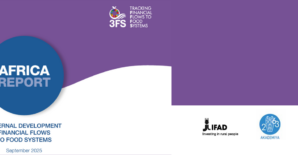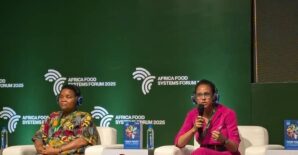International Women’s Day 2023 (March 8), under the theme “DigitALL: Innovation and technology for gender equality,” recognizes and celebrates the women and girls who are championing the advancement of transformative technology and digital education. To mark IWD and explore this important theme, we asked colleagues across IFPRI to share examples of innovation and technology they’ve seen work for improving gender equality and strengthening gender research capacity, and what research tells us about the rapidly changing landscape of gender and technology in food systems.
One way technology can promote women’s empowerment is through edutainment, (education+entertainment) delivered through mass media platforms including television and radio. How can edutainment help challenge attitudes and norms around gender-based violence?
Edutainment can help address some of the underlying attitudes behind gender-based violence (GBV) by engaging individuals in a storyline with educational and social issues integrated into the narrative. Edutainment through television or film may be a particularly effective strategy in targeting adolescents and young adults with relatively high levels of media exposure and who may often consider television a “super peer” that defines their norms and influences their behavior. We conducted a mixed method evaluation of a popular edutainment TV series in West Africa, C’est la vie!, which revolves around everyday life in a health clinic and is specifically meant to engage young women on issues including child marriage, teen pregnancy, intimate partner violence, and female genital cutting. Our process evaluation showed that women and girls in rural areas of Senegal universally loved the show, shared information and storylines with family and friends, and reported becoming aware of and learning about the series themes, which they viewed as important and applicable to their own lives. Moreover, we found that the series was successful at changing women and girl’s short-term knowledge and awareness around GBV as well as attitudes and norms in the medium-term, but that these were not accompanied by reductions in GBV. Further testing, refining, and expanding of edutainment and media in rural areas has the potential to both captivate and entertain, as well as shift harmful gender unequal attitudes and norms.
Explore the full interactive story here




